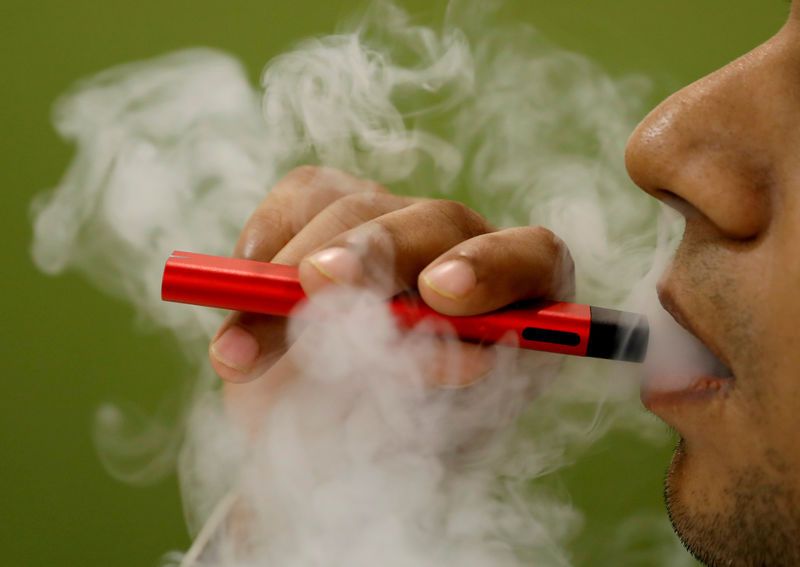By Julie Steenhuysen
CHICAGO (Reuters) - Tests of lung samples taken from 29 patients with vaping-related lung injuries suggest all contained Vitamin E acetate, a discovery U.S. officials described as a "breakthrough" in the investigation of the nationwide outbreak that topped 2,000 cases this week.
The discovery of Vitamin E acetate in lung samples offers the first direct evidence of a link with the substance and vaping-related lung injuries. The substance has also been identified in tests by U.S. and state officials of product samples collected from patients with the vaping injury.
In a telephone briefing on Friday, Dr. Anne Schuchet, principal deputy director of the U.S. Centers for Disease Control and Prevention (CDC), called Vitamin E acetate "a very strong culprit of concern" and referred to the discovery as "a breakthrough" in the investigation.
She cautioned that more work is needed to definitively declare it a cause, and said studies may identify other potential causes of the injuries as well.
Vitamin E acetate is believed to be used as a cutting agent in illicit products containing THC - the component of marijuana that gets people high.
Although the substance was detected in all 29 of the lung samples, which came from patients in several different states, more testing is needed to establish a causal link between exposure and injury, Schuchet said, adding that "many substances are still under investigation."
On Thursday, the CDC reported there have been 2,051 confirmed and probable U.S. lung injury cases associated with use of e-cigarette, or vaping, products in 49 states, the District of Columbia and the U.S. Virgin Islands, as well as 39 deaths.
Nearly 85 percent of lung injury patients in the nationwide outbreak have reported using products containing THC.
In the CDC analysis, THC was detected in 23 of 28 patient samples of lung cells, including from three patients who said they did not use THC products. Nicotine was detected in 16 of 26 patient samples.
The results were published on Friday in the CDC's Morbidity and Mortality Weekly Report.
In a separate report in the same journal, the Illinois Department of Public Health found that compared to vapers who did not get sick, those who had a lung injury were significantly more likely to use THC-containing vaping products exclusively or frequently, and were nine times more likely to have purchased products from illicit sources, such as from on-line or off the street.
The vaping injury patients also had a higher rate of using "Dank Vapes," a class of largely counterfeit THC-containing products, according to the study.
Together, the findings reinforce public health officials' recommendation that people avoid using e-cigarettes that contain THC or any products that come from illicit sources.
